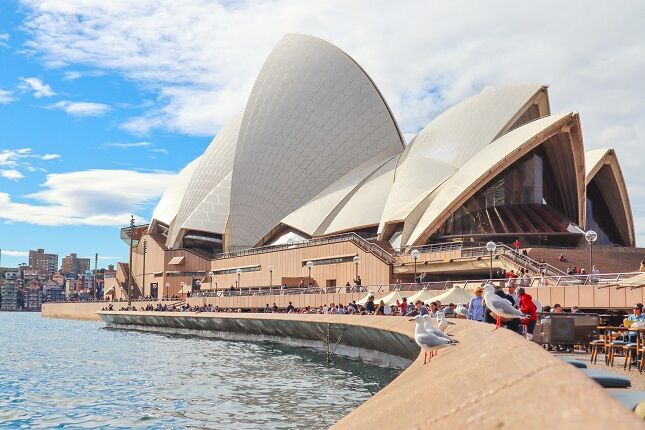G’day, and welcome to our in‑depth look at what it’s like to live in Australia! Whether you’re a curious traveller, a hopeful expat, or simply dreaming of life Down Under, this post will give you an engaging, professional and authentic portrait of Australian living.
Why People Choose Australia
Australia is celebrated for its jaw‑dropping natural beauty—from the golden sands of Bondi Beach to the red-gold expanses of the Outback—as well as its laid‑back yet ambitious culture. Mix in world‑class education, outstanding healthcare and a strong economy, and you’ve got a recipe for a lifestyle that balances opportunity with ease.
Everyday Life: A Blend of City, Coast and Country
Australians take pride in enjoying life’s simple pleasures: morning coffees al fresco, weekend barbecues with friends, or a surf at dawn. The major cities—Sydney, Melbourne, Brisbane, Perth and Adelaide—all offer vibrant arts, buzzing food scenes and outdoor lifestyles. Venture beyond the bitumen, and you’ll find serene wine regions, lush rainforests and charming coastal towns.
Cost of Living: What to Expect
Of course, cost plays a key role in choosing where to live. Curious about average monthly living expenses in Australia? You’ll find a balanced overview encompassing rent, utilities, groceries, transport and leisure—an essential guide for anyone planning a move.
- Rent: A one‑bedroom apartment in the CBD of Sydney or Melbourne might set you back AUD $2000 to AUD $3000 per month, while regional areas or outer suburbs often cost AUD $1200-1800.
- Groceries and dining out: You can expect to spend around AUD $400-600 monthly on food, with coffee and brunch culture adding a few extra bucks each outing.
- Transport and utilities: Public transport (with monthly passes) tends to cost AUD $150-200. Utilities like electricity, water and internet range from AUD $200-300.
- Leisure and entertainment: From cinema and theatre tickets to gym memberships and weekend getaways, budget another AUD $200-400 depending on your lifestyle.
Work, Career and the Aussie Way
The Australian workplace is often described as “fair dinkum”—meaning honest, friendly and merit‑based. Work‑life balance is genuinely valued, with reasonable working hours and generous leave entitlements. Skilled migrants find plenty of opportunities in sectors like healthcare, IT, engineering, education and mining. While the cost of living in major cities can be higher, salaries generally keep pace to maintain a comfortable standard of living.
Education and Healthcare: Built for Families
Families appreciate Australia’s public healthcare system, Medicare, which provides subsidised or free medical care. Private health insurance is also widely used to access certain services and tailored plans. When it comes to schooling, you’ll find reputable public and private schools, along with top‑tier universities like the University of Melbourne, Australian National University, and University of Sydney.
Lifestyle Highlights: What Makes Australia Special
- Outdoor obsession: Whether it’s beach volleyball, bushwalking, surfing or weekend camping—outdoor adventure is woven into the national fabric.
- Multicultural richness: Australia’s population is a wonderful tapestry of cultures, which makes for lively festivals, food markets, restaurants and events year‑round.
- Strong sense of community: Aussie mateship is real. Neighbours look out for one another, and there’s a genuine sense of inclusion.
- Safety and stability: Australia consistently ranks as one of the world’s safest nations, with robust infrastructure and political stability.
Challenges to Consider
- Distance: While inner-city life is compact, many of Australia’s greatest attractions are remote—and travel can be pricey.
- Cost: Some essentials, notably housing in top-tier cities, can be expensive. But many residents say the lifestyle payoff is worth it.
- Climate extremes: Australia’s climate varies significantly—bushfire season, tropical cyclones in the north, cold winters in Tasmania—and requires environmental awareness.
Tips for a Smooth Transition
- Choose your city wisely: Prioritise what matters most—job market, cost of living, schools, climate—and pick your base accordingly.
- Understand visa options: Popular visa pathways include skilled migration, family sponsorship and working holidays.
- Budget well: Calculate your average monthly expenses early—and review cost‑of‑living calculators to build a realistic financial plan.
- Explore before you commit: A short‑term rental or visit can help you experience the lifestyle and community firsthand before settling.
Living in Australia offers a compelling mix of sun, surf and suburbia, underpinned by opportunity, security and local warmth
From the excitement of Sydney’s city lights to the tranquillity of remote country towns, Australia caters to a wide range of lifestyles and aspirations. While the cost of living can be a hurdle, the rewards—a high quality of life, world-class services and a deep connection to nature—often make the adventure worthwhile. So whether you’re planning a short visit or pursuing permanent residency, Australia’s diverse landscapes, dynamic cities and open-hearted people are sure to make you feel at home.









































